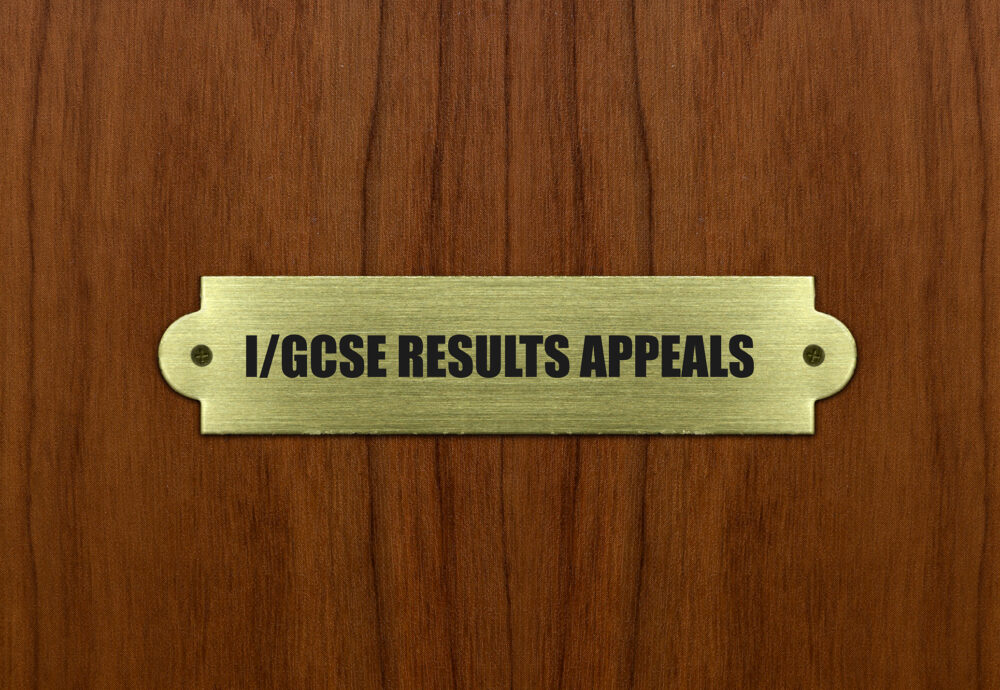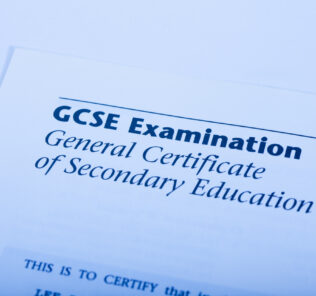Record levels of grade appeals are expected when GCSE and IGCSE results are released this Thursday 24 August as post-Covid grade deflation hits GCSE students.
Just as happened with A-Levels last week, it’s predicted that the number of top grades awarded will fall significantly, with analysis by Professor Alan Smithers – who leads the UK’s Centre for Education and Employment Research – suggesting that the number of grades marked as Grade 7 or higher (equivalent to A or A*) could drop by a record-breaking 230,000 this year.
Appealing Grades
Ofqual, the British exam board regulator, has made it clear that grade boundaries will be tougher this year, in an effort to clamp down on the grade inflation that was seen over the pandemic with the more generous teacher-assessed grades. It is therefore feared that a considerable number of students might be disappointed as they miss out on the grades they were hoping for. One result of this is the prediction that parents are likely to formally appeal unexpectedly low grades that could negatively impact their child’s future.
This means that the exact grade boundaries are particularly important in 2023, as families will be able to use them check how close a student’s mark was to the upper or lower level of the grading boundary, and work out whether it might be worth appealing their child’s grade.
When is GCSE Results Day 2023?
GCSE results day falls on Thursday 24 August this year – a week after A Levels were released.
Results are released at the same time internationally, with UAE schools able to provide results from 11am UAE time – although check with your individual school whether this is the case, and if you would prefer an emailed results.
How and When are 2023 Grade Boundaries Decided?
The release of grade boundaries occurs after students have completed their exams and the assessments have been evaluated by independent examiners who follow published marking criteria. These boundaries are established to ensure consistency in grading across different years. For example, if a paper turns out to be easier than the previous year’s, the grade boundaries might be adjusted to account for the difference. To align results with the standards prior to the pandemic, Ofqual has mentioned that grade boundaries will be raised this year compared to the past two years.
Dr Jo Saxton, head of Ofqual, explained results would be more similar to pre-pandemic levels after they were significantly higher in 2020 and 2021. However, she said that examiners will use data to set grade thresholds that are “fair to students”.
“A student should be able to get a grade that they would have got had there not been a pandemic, even if the quality of their work is a little bit weaker.”
When are Grade Boundaries Released?
On GCSE and IGCSE results day, grade boundaries are made public on the websites of exam boards such as Edexcel (which does IGCSEs, popularly taken in the UAE), AQA, OCR, and Cambridge Assessment International Education (the sister board of OCR, which has already released its IGCSE results last week).
The grade boundaries for all of these exam boards will be accessible at the same time from 11am UAE time tomorrow 24 August.
You will be able to access the relevant grade boundaries at 11am on 24 August 2023 via the links below:
- Cambridge Assessment International Education’s IGCSE grade boundaries are already available here
- Edexcel / Pearson GCSE and IGCSE grade boundaries will be here on 24 August at 11am UAE time
- AQA GCSE grade boundaries will be available here on 24 August at 11am UAE time
- OCR A-level grade boundaries will be available here at 11am UAE time
Should I Appeal my GCSE or IGCSE Grade?
Appealing a GCSE or IGCSE grade must go through your school, and it’s worth noting that grades may go up or down, and a cost may be incurred.
The number of GCSE appeals in the UK increased from 775 in 2019 to 1,090 in 2022, despite last year’s grade boundaries being slightly more generous than those seen in pre-pandemic years.
Pundits predict this figure will surge again with the stricter grade boundaries, which could see up to 300,000 fewer top marks handed out on GCSE results day on Thursday.
How to Appeal my IGCSE or GCSE Grade
Appealing a GCSE grade involves a specific process that varies depending on your circumstances and the reason for the appeal. Ofqual is the official place for guidance on this matter. If you believe there has been an error in the grade you received, you can follow these general steps to initiate an appeal:
- Contact Your School or College: Start by speaking to your teacher or school’s exams officer. They can provide guidance on the process and help you understand the reason for your grade.
- Review the Marking: If you believe there may have been a mistake in the marking, you can request to see your marked exam paper. This can help you understand how the grade was determined.
- Request a Review: If you still believe there is an error in your grade, you can request a review of marking or moderation. This means asking the exam board to recheck your exam papers or coursework. Your school or college will need to submit this request on your behalf.
- Deadline: Keep in mind that there is a deadline for submitting review requests. This deadline is typically a few weeks after the results are released. Make sure to check the specific deadline for your year.
- Pay Attention to Fees: In some cases, there might be a fee associated with the review process. If the review leads to a grade change, this fee is usually refunded.
- Await the Outcome: Once the review is requested, you will need to wait for the exam board’s decision. This can take several weeks.
- Appeal to the Exam Board: If you’re still unsatisfied with the outcome after the review, you can consider making an appeal directly to the exam board. This step involves a formal process and usually requires your school’s support. The grounds for appeal could include errors in the process, application of procedures, or if your school believes that the grade doesn’t reflect your abilities.
- Contact Ofqual: If you exhaust the internal appeal process and remain dissatisfied, you can contact the exams regulator, Ofqual, for further guidance. They can provide information on your options and the next steps to take.
Remember that the process and deadlines for appealing grades can change, so it’s crucial to stay updated through your school or college and official exam board communications. It’s also important to approach the process with clear evidence and a legitimate reason for your appeal.
Join us tomorrow for GCSE Results Day 2023 – only on SchoolsCompared.com
© SchoolsCompared.com. A WhichMedia Group publication. 2023 – 2024. All rights reserved.










































































Leave a Response